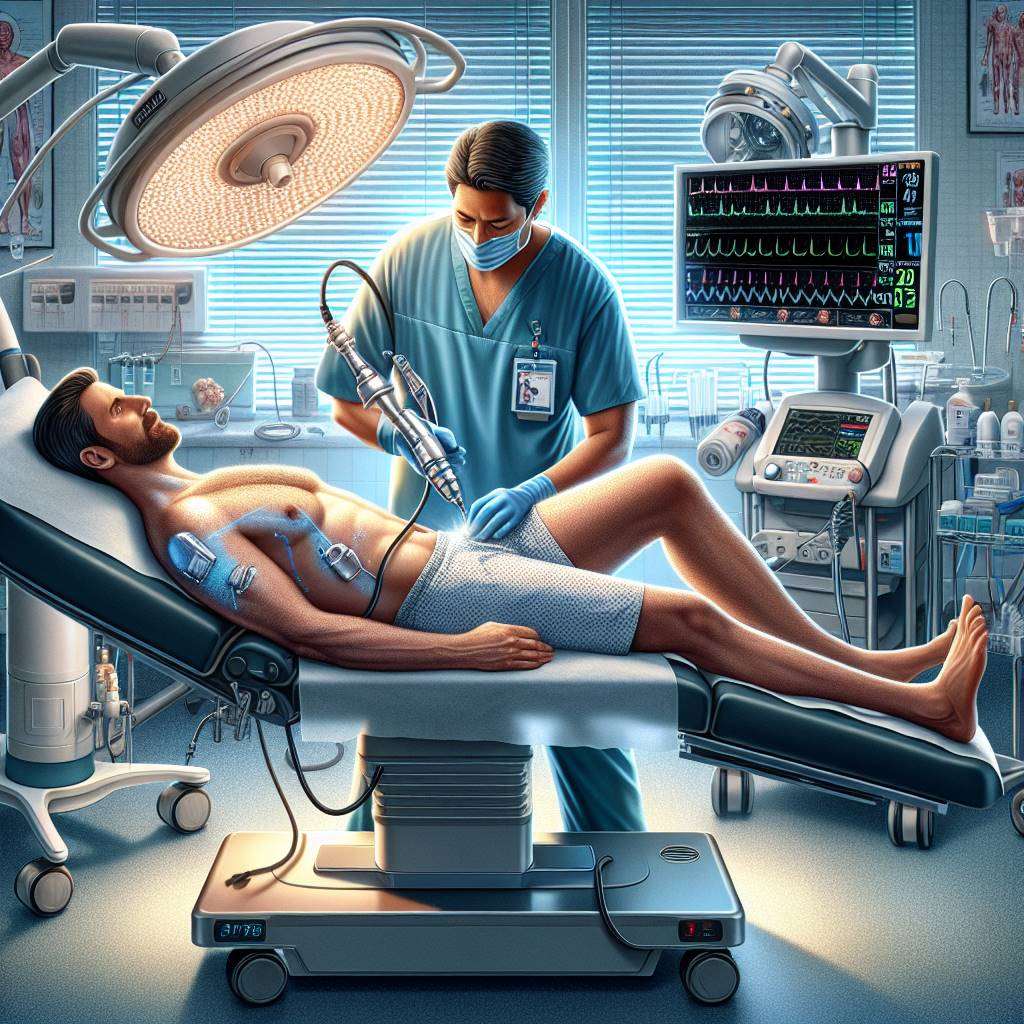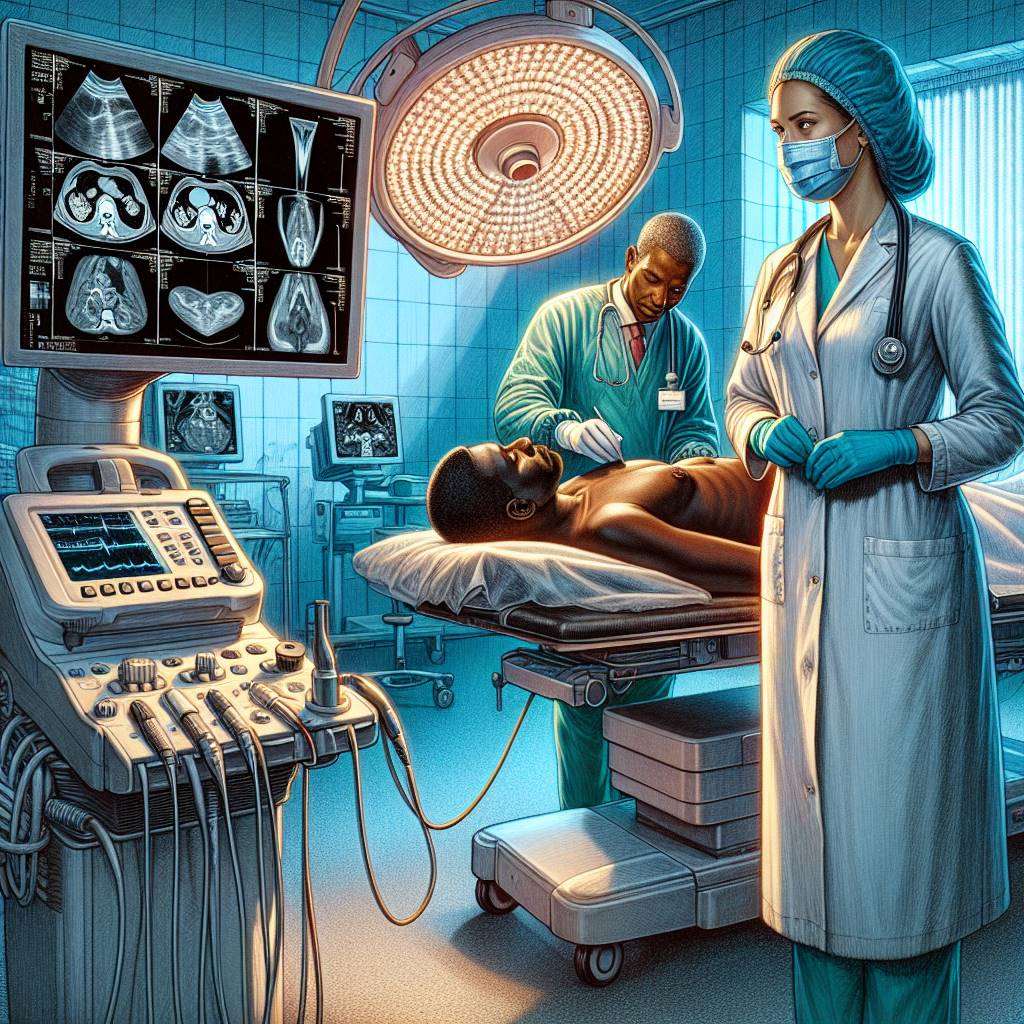Radiofrequency Ablation, commonly known as RFA, is a minimally invasive procedure used to manage chronic pain by targeting specific nerves. The cost of this therapy can vary depending on factors such as the healthcare facility, the expertise of the medical team, and the extent of the treatment required. This procedure is often chosen for its precision and effectiveness in providing long-term relief. Understanding the associated costs can help you make informed decisions about your care.
Medical disclaimer: This content is for general awareness and does not replace a doctor’s consultation. For diagnosis or treatment decisions, consult a qualified specialist.
At a Glance: Key Takeaways About RFA Therapy Costs
Radiofrequency Ablation (RFA) therapy in India is a cost-effective treatment for chronic pain and certain medical conditions. The cost typically ranges from ₹1,80,000–₹3,60,000 (≈ $2,150–$4,350 USD), depending on factors like hospital location and expertise.
- Choose RFA for minimally invasive pain relief.
- Consider alternatives if surgery is contraindicated.
- Costs vary significantly across cities and hospitals.
- Post-procedure recovery is usually quick.
- Hidden costs like follow-ups may apply.
Costs & Factors: Typical Ranges for RFA Therapy in India
What Influences the Cost of RFA Therapy?
The cost of RFA therapy in India depends on several factors, including the hospital's location, the doctor's expertise, and the complexity of the condition being treated. Advanced imaging guidance and specialized equipment can also increase costs. Additionally, private hospitals in metro cities tend to charge more than smaller facilities in tier-2 cities.
Average Price Range Across Indian Cities
In major cities like Mumbai, Delhi, and Bangalore, the cost of RFA therapy typically ranges from ₹2,00,000 to ₹3,60,000. In smaller cities, the price may be lower, starting at around ₹1,80,000. These costs include the procedure, hospital stay, and basic medications but may exclude follow-up visits.
Hidden Costs to Watch Out For
Patients should be aware of potential hidden costs, such as pre-procedure diagnostic tests, additional medications, and follow-up consultations. Some hospitals may also charge separately for imaging guidance or anesthesia, which can add significantly to the final bill.
- Pre-procedure tests: ₹10,000–₹20,000
- Follow-up visits: ₹5,000–₹10,000 per session
- Additional medications: ₹2,000–₹5,000
How It Works: Steps & Workflow of RFA Therapy
Preparation Before the Procedure
Before undergoing RFA therapy, patients are typically required to undergo diagnostic tests such as imaging scans to pinpoint the target area. Doctors may also review the patient's medical history and adjust medications, such as stopping blood thinners, to minimize risks during the procedure.
The Procedure: What Happens During RFA?
During the procedure, a thin needle is inserted into the target area under imaging guidance, such as ultrasound or fluoroscopy. Radiofrequency energy is then delivered through the needle to heat and disable the affected nerves, reducing pain signals. The entire process usually takes 30–90 minutes.
Post-Procedure Care & Recovery
After the procedure, patients are monitored for a few hours and can typically return home the same day. Mild soreness at the treatment site is common and can be managed with over-the-counter pain relievers. Most patients resume normal activities within a week, but follow-up visits may be needed to assess effectiveness.

Benefits & Risks: What to Expect from RFA Therapy
RFA therapy offers significant benefits, including long-lasting pain relief and minimal recovery time. However, like any medical procedure, it carries some risks, such as infection, nerve damage, or incomplete pain relief. These complications are rare when performed by experienced professionals.
- Benefits: Minimally invasive, effective pain relief, short recovery.
- Risks: Infection, temporary numbness, or incomplete results.
- Follow-up care ensures optimal outcomes.
Who It’s For: Eligibility & When to Choose It
Who Should Consider RFA Therapy?
Radiofrequency Ablation (RFA) therapy is typically recommended for individuals experiencing chronic pain due to conditions like arthritis, nerve damage, or spinal issues. It is also suitable for patients who have not responded well to conservative treatments such as medications or physical therapy. Patients seeking minimally invasive pain relief with shorter recovery times may benefit most from RFA.
When Is RFA Therapy Not Recommended?
RFA therapy is not advised for individuals with active infections, bleeding disorders, or those who are pregnant. Additionally, patients with pacemakers or other implanted electronic devices may face risks during the procedure. It is important to consult a specialist to determine if RFA is safe based on your medical history and current health condition.
Timeline & Aftercare: First 4–12 Weeks Post-RFA
After undergoing RFA therapy, most patients experience mild soreness or swelling at the treatment site, which typically resolves within a few days. During the first 4 weeks, it is crucial to avoid strenuous activities and follow your doctor’s instructions for pain management. By 6–8 weeks, many patients notice significant pain relief, allowing them to resume normal activities.

By the 12th week, the full effects of the therapy are usually evident. Regular follow-ups with your healthcare provider are essential to monitor progress and address any concerns. Adhering to prescribed physical therapy or exercises can further enhance recovery outcomes.
- Avoid heavy lifting for 2–4 weeks.
- Use ice packs to reduce swelling.
- Attend all scheduled follow-up appointments.
Alternatives & When They Fit Better
Non-Invasive Alternatives to RFA
Non-invasive options like physical therapy, acupuncture, or transcutaneous electrical nerve stimulation (TENS) may be suitable for patients with mild to moderate pain. These methods focus on improving mobility and reducing discomfort without the need for invasive procedures. However, they may not provide long-term relief for severe or chronic pain conditions.
Surgical Options Compared to RFA
For patients with advanced conditions or when RFA fails to provide adequate relief, surgical interventions such as spinal fusion or joint replacement may be considered. While surgery can offer more permanent solutions, it involves longer recovery times and higher risks compared to the minimally invasive nature of RFA therapy.
Key Differences: Side-by-Side Comparison
Understanding the differences between RFA therapy and other treatment options can help patients make informed decisions. Here’s a quick comparison:
| Dimension |
RFA Therapy |
Surgical Options |
| Candidacy |
Chronic pain, non-responsive to meds |
Severe joint/spinal damage |
| Durability/Effectiveness |
Relief lasts 6–12 months |
Permanent solution |
| Medications/Anticoagulation |
Minimal post-procedure meds |
May require long-term meds |
| Recovery Time |
1–2 weeks |
6–12 weeks |
| Risks/Re-operation |
Low risk, repeatable |
Higher risk, rare re-operations |
| Cost |
Moderate |
High |
Latest Updates & What’s Changing in RFA Therapy
Radiofrequency Ablation (RFA) therapy has seen significant advancements in recent years, particularly in precision and safety. Modern RFA devices now use advanced imaging techniques like ultrasound and CT scans to ensure accurate targeting of affected tissues, reducing the risk of complications.

Additionally, newer protocols have improved patient comfort and recovery times. These updates make RFA a more viable option for managing chronic pain and certain cancers. The therapy is also becoming more accessible in India, with an increasing number of specialized centers offering the procedure.
- Improved imaging for precision targeting
- Shorter recovery periods
- Enhanced safety measures
- Wider availability across India
How to Choose the Right Provider for RFA Therapy
Choosing the right provider for RFA therapy is crucial for optimal outcomes. Look for a facility with experienced specialists who have a proven track record in performing RFA procedures. Verify that the center uses modern equipment and adheres to international safety standards.
Consider hospitals or clinics that offer comprehensive pre- and post-procedure care, including detailed consultations and follow-ups. Patient reviews and success rates can also provide valuable insights into the provider’s reliability and expertise.
- Check specialist experience and credentials
- Ensure use of advanced technology
- Look for strong patient reviews
- Confirm availability of follow-up care
Risks & Trade-offs to Consider Before RFA
While RFA therapy is generally safe, it is not without risks. Potential complications include infection, nerve damage, or temporary discomfort at the treatment site. These risks are rare but should be discussed with your doctor before proceeding.
Another trade-off to consider is that RFA may not provide permanent relief, especially for chronic conditions. Repeat treatments might be necessary, and the effectiveness can diminish over time. Balancing these factors with the benefits of reduced pain and improved quality of life is essential.
- Low but possible risk of infection
- Temporary nerve irritation
- Relief may require repeat sessions
- Effectiveness varies by individual
Frequently Asked Questions About Radiofrequency Ablation (rfa) Therapy Cost in India
What is the average cost of RFA therapy in India?
The average cost of Radiofrequency Ablation (RFA) therapy in India ranges from ₹50,000 to ₹1,50,000. The exact cost depends on factors like the hospital, location, and the complexity of the procedure. This makes it a relatively affordable option compared to many other countries.
Does insurance cover RFA therapy in India?
Yes, many health insurance plans in India cover RFA therapy, especially if it is deemed medically necessary. It is important to check with your insurance provider about the specific terms, coverage limits, and any out-of-pocket expenses.
How do costs vary between private and government hospitals?
Costs for RFA therapy are generally higher in private hospitals, ranging from ₹70,000 to ₹1,50,000, while government hospitals may offer the procedure at a significantly lower cost. However, private hospitals often provide shorter wait times and more advanced facilities.
Are there additional costs for follow-up care?
Yes, follow-up care after RFA therapy may involve additional costs for consultations, medications, and imaging tests. These expenses vary depending on the patient’s recovery needs and the healthcare facility.
What factors affect the pricing of RFA therapy?
The cost of RFA therapy is influenced by factors such as the hospital type, the doctor’s expertise, the location of the procedure, and the patient’s specific medical condition. Advanced equipment and post-procedure care can also impact the overall cost.
Is RFA therapy cost-effective compared to alternatives?
RFA therapy is considered cost-effective for managing chronic pain or certain conditions, as it provides long-term relief with minimal recovery time. Compared to surgical options, it is less invasive and often more affordable.
How can I find affordable RFA therapy options?
To find affordable RFA therapy options, consider comparing costs across multiple hospitals, including government facilities. Seeking treatment in smaller cities or using insurance coverage can also help reduce expenses.
What payment options are available for RFA therapy?
Payment options for RFA therapy in India include cash, credit/debit cards, and health insurance. Some hospitals also offer EMI plans or financial assistance programs to make the procedure more accessible.
Discover the Best Oncologists and Cancer Hospitals in India
When it comes to cancer treatment, finding the right specialist and hospital can make a significant difference in the outcome. In this blog, we have compiled a list of the top oncologists and cancer hospitals across major cities in India, ensuring that you have access to the best care available.
Top Oncologists in Major Cities
For those seeking expert oncologists, we have identified the best specialists in key cities:
Leading Cancer Hospitals
In addition to finding the right specialist, choosing the right hospital is crucial for comprehensive cancer care. Here are the top hospitals in major cities:
Get more indepth information on Cancer treatments and their costs
Conclusion
Finding the right oncologist and hospital is the first step in your cancer treatment journey. Explore the links above to learn more about the top specialists and hospitals in your area.